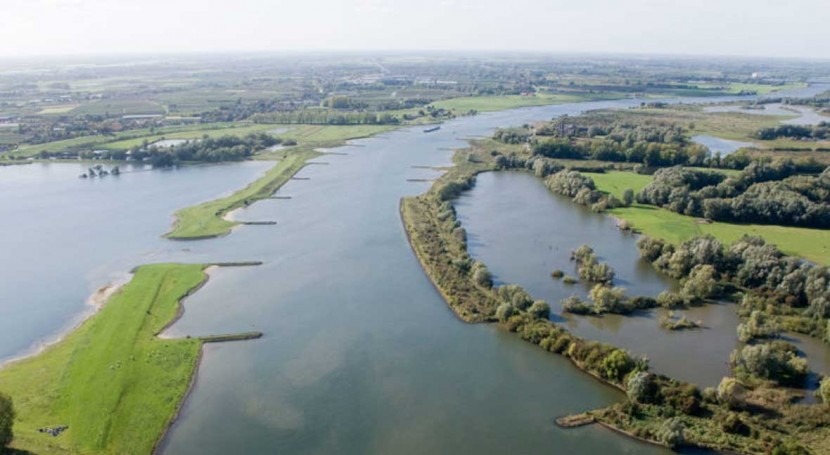New approach to hydrological modelling applicable to every river basin in the world
Water managers are continuously making decisions to guarantee water safety. These decisions relate to the short term, for example ongoing droughts or, precisely, when there is a risk of flooding. But they can also affect the long term given the more extreme events caused by climate change. All these decisions have one thing in common: they are often grounded on results from hydrological models.
Modelling with high spatial resolution
Designing a model like this and setting it up for a specific river basin involves a lot of challenges. In particular, setting up the parameters of the model is often thought to be a difficulty. Parameters in a hydrological model are used to link the behaviour of the model to that of the river for which the model is set up. Current hydrological models are spatially distributed, which means that they divide the river basin into small cells of, for example, one square kilometre. A set of parameters are in place for each cell. Until now, the parameter values were determined using calibration methods that were applied to all the model parameters. However, with the ongoing increase in spatial resolution that we use to model river basins, this approach is becoming an unattainable multidimensional challenge.
Freely available spatial data
In this study, the parameters of a hydrological model were estimated using experimental functions from the literature that have been derived in laboratories worldwide. The functions use freely available information about the locality – such as soil, vegetation and land use data – to estimate physical properties. For the application of these functions, a model is needed with parameters that represent the physical properties. Wflow_sbm, a hydrological model largely developed at Deltares, delivers this and it therefore represents an excellent opportunity to test an approach of this kind. The case selected for modelling was the European Rhine, with model parameters first being derived with a level of resolution that was often higher, followed by upscaling with the parameter-specific scaling rules to the model resolution. The advantage of this approach is that it provides consistent parameter fields for each resolution required. The highest possible resolution is often desirable but this is often not feasible for climate research in terms of computing power. A coarser resolution is the better option in these cases as long as the results differ as little as possible from the results at a higher resolution. The correct upscaling of the parameters makes this possible.
Robust and scale-independent model
The results for the Rhine are promising and comparable with the current operational model but they are scalable and derived much faster. Subsequent development will involve testing the limits of this approach for river basins worldwide in combination with other experimental functions for parameter estimates because the feasible maximum may not yet have been reached. The development of the model (wflow_sbm) is also continuing. Deltares experts are now working on an improved derivation of the river and drainage network in order to make the model more robust and scale-independent.
Ruben Imhoff (Deltares / Wageningen UR researcher): ‘The special thing about this approach, is that the application is not limited to the Rhine. We can apply the approach to any river basin worldwide, which makes it possible to simulate the hydrology in non-surveyed areas in, for example, developing countries’.













